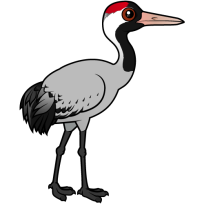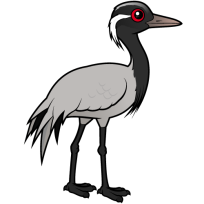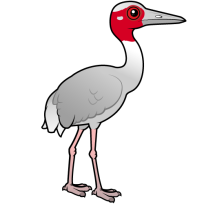Download this free map with all cranes of the world. The map shows all 15 species of crane with arrows to the areas where they live. You can buy this map as a poster or on other products.
Cranes of the World

Cranes are large birds of the family Gruidae. These long-legged and long-necked birds are fairly cosmopolitan, with species found on all continents except for South America and Antarctica.
Most crane species rely on wetlands for breeding, nesting, and/or roosting. Loss of wetlands around the world threatens several species of crane; in fact, of the 15 species of crane in the world, all but four are considered to have some level of threat to their survival. The Siberian Crane is the most imperiled, considered to be Critically Endangered. North America's Sandhill Crane, on the other hand, is the world's most abundant species of crane.
Cranes tend to be omnivorous and opportunistic feeders, grazing on grains or other plant material, as well as hunting prey items like insects or small mammals and reptiles. Sarus Cranes are known to take the eggs of other birds or turtles as food. Sandhill and Common Cranes both tend to feed more on plant material than animal.
Most crane species are very vocal, having distinctive calls that may be performed in unison as part of mating rituals. Cranes are also known for their elaborate courtship and pair-bonding dances. These dances and duets are performed by pairs that may mate for the life of the birds.
The cranes are a fascinating family of birds. Browse through our species pages to learn about the different types of crane found in the world. Print out our free coloring pages and activity sheets, and help us spread awareness of these amazing, important, and, of course, cute, birds!








































Comments
Be the first to comment
Thank you!